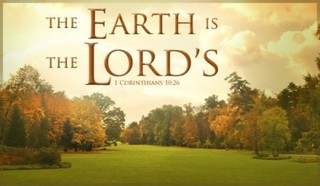
- Recent Translations
- All Translations
1 Corinthians 10:18 Meaning and Commentary
Behold Israel after the flesh
So the apostle calls them, to distinguish them from the Israel of God, the spiritual Israel, whether Jews or Gentiles; who are born again, believe in the true Messiah, worship God in a spiritual manner, rejoice in Christ Jesus, and have no confidence in fleshly things; but these were the descendants of Jacob or Israel by carnal generation, were carnal men, in the flesh, in a state of unregeneracy, and were employed in a carnal worship, in the observance of carnal commandments and ordinances; these the apostle directs to, to see, consider, and take notice of what they were doing; from whence some instruction might be taken, for the further clearing of the present point:
are not they which eat of the sacrifices partakers of the altar?
yes, they are. The priests and Levites who waited at the altar, and ministered about holy things there, who brought the sacrifices and laid them upon the altar of the burnt offerings, where the altar consumed and devoured one part by fire, and that which was left they ate among themselves; and so as they had communion with one another in eating, they partook of the altar, of the things, or sacrifices of the altar, and showed themselves to be of the Jewish religion, and professed and declared that they worshipped the God of Israel, and would be thought to have communion with him in so doing; in like manner, such who eat of things sacrificed to idols, declared themselves to be idolaters, to be of the Pagan religion, to be worshippers of idols, and to have fellowship with them.
